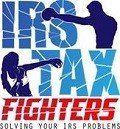Step 3: Collection Actions Begin
Once the IRS determines that the debt is unresolved, they may initiate collection actions. Here are some of the most common methods:
1. Tax Liens: A tax lien is a legal claim against your property (real estate, personal property, or financial assets). While it doesn’t involve immediate seizure, it can harm your credit score and make it difficult to sell or refinance property.
2. Wage Garnishment: The IRS can contact your employer and require them to withhold a portion of your paycheck to satisfy your tax debt. This is often referred to as a "wage levy."
3. Bank Levies: A bank levy allows the IRS to seize funds directly from your bank account. Once the levy is issued, the bank freezes your account and forwards the funds to the IRS after 21 days unless you resolve the debt.
4. Seizure of Assets: In rare cases, the IRS may seize physical assets, such as your home, car, or other valuables, to satisfy unpaid tax debt.
Important Note: The IRS’s ability to collect through liens, levies, and asset seizures is powerful, but you have rights and options to protect yourself.
Step 4: Options for Resolving Tax Debt
Fortunately, the IRS offers several programs to help taxpayers resolve their debts. Here are some of the most common solutions:
Installment Agreements
An installment agreement allows you to pay your tax debt in monthly installments over time. This can help make large tax bills more manageable. Depending on your situation, you may qualify for a streamlined agreement that requires minimal financial documentation.
Offer in Compromise (OIC)
An Offer in Compromise allows you to settle your tax debt for less than the full amount owed. To qualify, you must demonstrate that paying the full amount would create a financial hardship. The IRS considers factors such as income, expenses, and asset equity when evaluating OIC applications.
Currently Not Collectible (CNC) Status
If you can’t afford to pay your tax debt due to financial hardship, you may qualify for "Currently Not Collectible" status. While in CNC status, the IRS temporarily suspends collection efforts. However, penalties and interest will continue to accrue on your balance.
Innocent Spouse Relief
If your tax debt is the result of errors or omissions made by your spouse (or former spouse) on a joint tax return, you may qualify for innocent spouse relief. This program can relieve you of responsibility for the tax debt associated with your spouse’s mistakes.
Tip: Each of these options requires specific qualifications and documentation. Working with a tax resolution professional can help ensure your application is accurate and complete.
Step 5: Your Rights as a Taxpayer
The IRS must follow strict rules when collecting taxes, and you have rights throughout the process. These include:
1. The Right to Be Informed: The IRS must provide clear explanations of your tax obligations and any actions they intend to take.
2. The Right to Challenge the IRS: You have the right to appeal IRS decisions, such as liens or levies, if you believe they are incorrect or unfair.
3. The Right to Retain Representation: You have the right to work with a tax professional to help resolve your case.
4. The Right to a Fair and Just Tax System: The IRS must consider your financial situation and ability to pay when taking collection actions.
Why You Should Act Now
Ignoring tax debt won’t make it disappear. In fact, delays can lead to increased penalties, interest, and enforcement actions. By addressing the issue early, you can explore options to reduce your debt, prevent aggressive collection actions, and regain financial stability.
If you’re unsure where to start, don’t worry.
IRS Tax Fighters
specializes in helping individuals and businesses resolve their tax issues quickly and efficiently. Contact us at 281-962-0070 to schedule a consultation today.
Final Thoughts
The IRS collection process can be stressful, but understanding how it works is the first step toward resolving your tax issues. From responding to notices to exploring resolution options, taking proactive steps can help you avoid unnecessary financial strain and protect your assets.
Remember, you don’t have to navigate this process alone. With the right help and guidance, you can overcome your tax challenges and achieve peace of mind.


